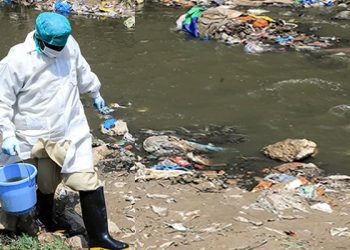Experts have sounded alarm for those people who always carry a water bottle — also called an “emotional support water bottle” — with them and never go out without it. If you are one of them, then you may listen to these experts.
It is a healthy habit to always stay hydrated, taking sips of water in a little while however if taken too far, according to health experts, it may also cause you serious harm leading to a fixation on hydration.
Dr. Kambiz Kalantari, a nephrologist at the Mayo Clinic in Rochester, Minnesota said: “It’s not easy to overwhelm your kidneys. But there are situations in which people are obsessed with drinking water. … We’re talking about 10, 15 liters that overwhelm their kidneys.”
There are some tips to keep your water intake in check and mitigate the risk of over-hydration.
Possibility of over-hydration
There is an old saying about how much water one should drink that does not fit every person as there is a difference in physique, activity, and other factors.
According to a recommendation from the National Academy of Medicine, 3.7 liters of water for males and 2.7 for women in a day. This suggestion also includes sources other than only water, such as beverages and food.
On the other hand, the Mayo Clinic recommended drinking 8 cups a day as it is easy to remember and typically keeps hydration levels balanced.
Nevertheless, it depends on how much water one needs.
Dr Kalantari said that it is not necessary to forcefully drink if not thirsty.
“Drinking too much water would cause kidneys to excrete the excess fluid, resulting in a lot of urination,” Dr Kalantari added.
If a person has difficulty in excreting the fluid out when the kidneys are overwhelmed, it may cause a person to visit the hospital.
According to Dr Kalantari, there are limits to the amount of fluid kidneys are able to excrete if a person has not eaten enough food that day.
Dr Ryan Bober, an internal medicine specialist with Cedars-Sinai in Los Angeles, said: “If you start to get to the point where you don’t really have much of a thirst mechanism then you’ve kind of pushed yourself into the range of overhydration.”


















































